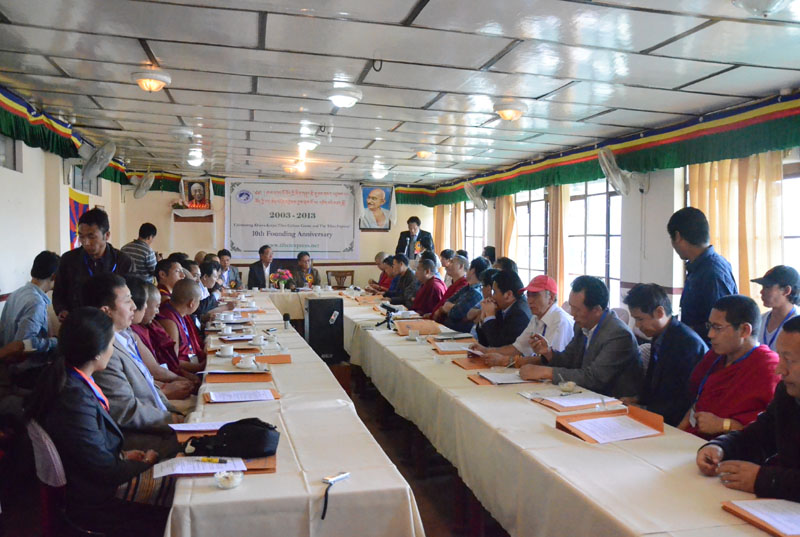 Dharamshala: - The KTC, a Tibetan culture centre Thursday celebrated its 10th founding anniversary in the Himalayan town of Dharamshala in the state of Himachal Pradesh in Northern India.
Dharamshala: - The KTC, a Tibetan culture centre Thursday celebrated its 10th founding anniversary in the Himalayan town of Dharamshala in the state of Himachal Pradesh in Northern India.
Mr Pema Chhinjor, Kalon for Department of Religion and Culture , Mr Karma Choephel, member of standing committee of the Tibetan Parliament, Mr Tashi Phuntsok, Secretary of Information and International Relations, CTA, were among invited guests.
The Khawa Karpo Tibet Culture Centre was founded in 2003 by a group of young Tibetans, under its auspices currently run a weekly Tibetan language newspaper 'Bod-kyi Bangchen' (The Tibet Express) to serve the Tibetan community, according to Mr Serta Tsultrim, director of the organisation, who is also a member of Tibetan parliament.
"Our aim is to promote Tibetan cultural heritage and and protect human rights and freedom of Tibetans," said Mr Tsultrim.
Addressing the gathering, Mr Chhinjor praised the organization achievemens in the past 10-years. "The media has a right to criticise any institution," however he said it also has certain responsibilities based on truth.
"According to media scholars, I think the media should have a positive vision to change community for the better and bring the truth to the public, with sense of justice and credibility," said Mr Karma Choephel.
Tashi Phuntsok praised the organization for its contribution to Tibetan cultural and media in the community. The pereservation of the cultural heritage of Tibet is very relevant, he said.
Describing the media as the fourth pillar of democracy, Mr Phuntsok said the Tibetan media in the free world should act the voice of the Tibetans living under the occupation and repression of the Chinese government.
According to the organisatin, 'most of the current staff members were born in Tibet and received traditional education there. They received the opportunity to study modern education after coming to exile.'


![Tibet has a rich history as a sovereign nation until the 1950s when it was invaded by China. [Photo: File]](/images/stories/Pics-2024/March/Tibet-Nation-1940s.jpg#joomlaImage://local-images/stories/Pics-2024/March/Tibet-Nation-1940s.jpg?width=1489&height=878)















